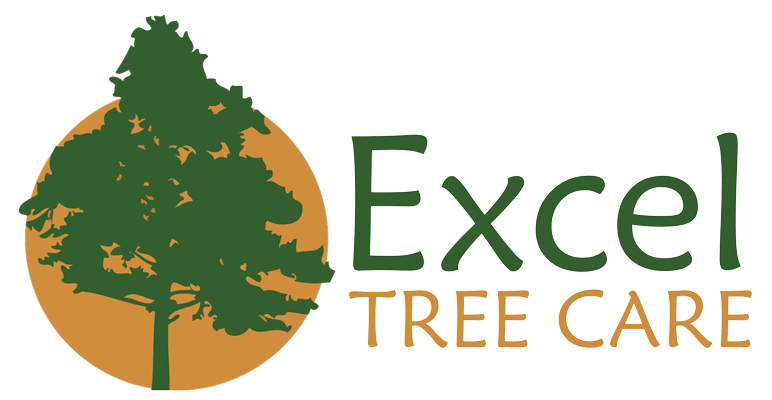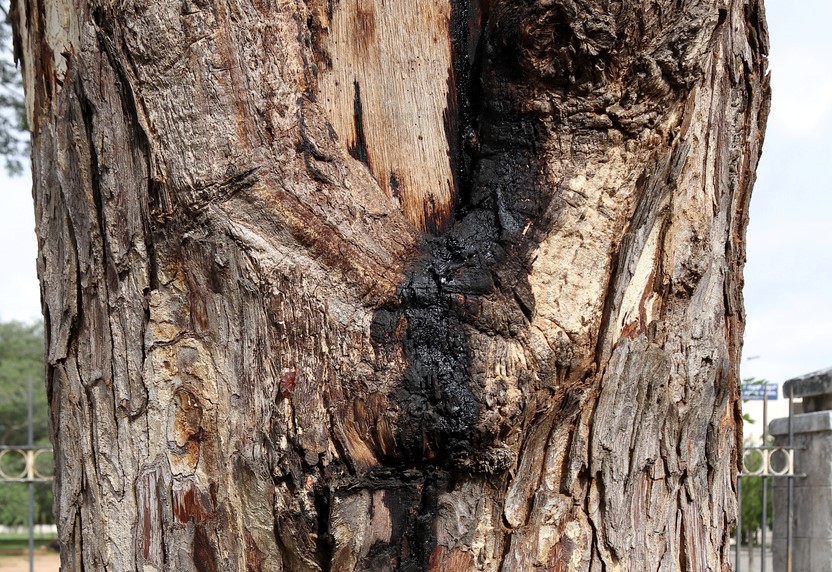Diagnosing and treating or otherwise addressing diseases of trees can be complicated, given the diversity of pathogens that can be found in Greater Atlanta. A notable disease we sometimes run into here at Excel Tree Care is Hypoxylon canker, a fungal malady that can affect oaks and certain other hardwood species.
Hypoxylon canker can, unfortunately, be a one-way road if allowed to advance, with infected trees too structurally compromised and all-around declining to remain on a property. It’s therefore important to look for signs of this canker—and address potential causes—well in advance.
Here at Excel Tree Care, we can help with the diagnosis of Hypoxylon canker—and, if necessary, carry out the requisite diseased tree removal.
Hypoxylon Canker: Causes & Symptoms
 The fungus that causes Hypoxylon canker doesn’t generally harm healthy trees, even though it’s often present on them. A tree that’s been weakened, stressed, or injured, however, is vulnerable to fungal attack.
The fungus that causes Hypoxylon canker doesn’t generally harm healthy trees, even though it’s often present on them. A tree that’s been weakened, stressed, or injured, however, is vulnerable to fungal attack.
The setup for the canker is unfortunately commonplace in many urban and residential settings: Trees whose roots are injured by construction, landscaping, or other intensive activities, or suffering from compacted soil, are at risk of the disease. But storms, drought, and other natural conditions can also stress or damage a tree and expose it to infection.
Symptoms of Hypoxylon canker can include wilting or yellowed foliage, diminished twig growth and leaf size, branch die-off and canopy thinning, and epicormic shoots (those clusters of small twigs growing straight off the trunk or branches), among other signs.
As the canker advances, the outer bark of the infected tree sloughs off to reveal fungal mats underneath.
Addressing Hypoxylon Canker
Once symptoms are widespread, a tree infected with Hypoxylon canker often must be removed given the amount of deadwood that results and the likelihood of branch-fall and eventual toppling.
Keeping careful watch for signs of tree stress and ensuring adequate growing conditions, drainage, water, and other fundamentals of tree health are critical to avoiding infection by Hypoxylon canker. Upon noticing early symptoms of a stressed or weakened tree, steps should be taken to mitigate the causes before an opportunistic fungal outbreak occurs.
For the perfect certified arborists in Atlanta for the job, look no further than Excel Tree Care! We can help you evaluate the health of your property’s hardwoods, perform maintenance and upkeep to improve your trees’ condition, and certainly execute safe, leave-no-trace tree removal—and stump-grinding—if necessary. Our emergency tree-removal services are available 24-7!
Get in touch with our team for any and all tree care and tree removal in Atlanta: Call 404-964-6508 or fill out our online contact form.

